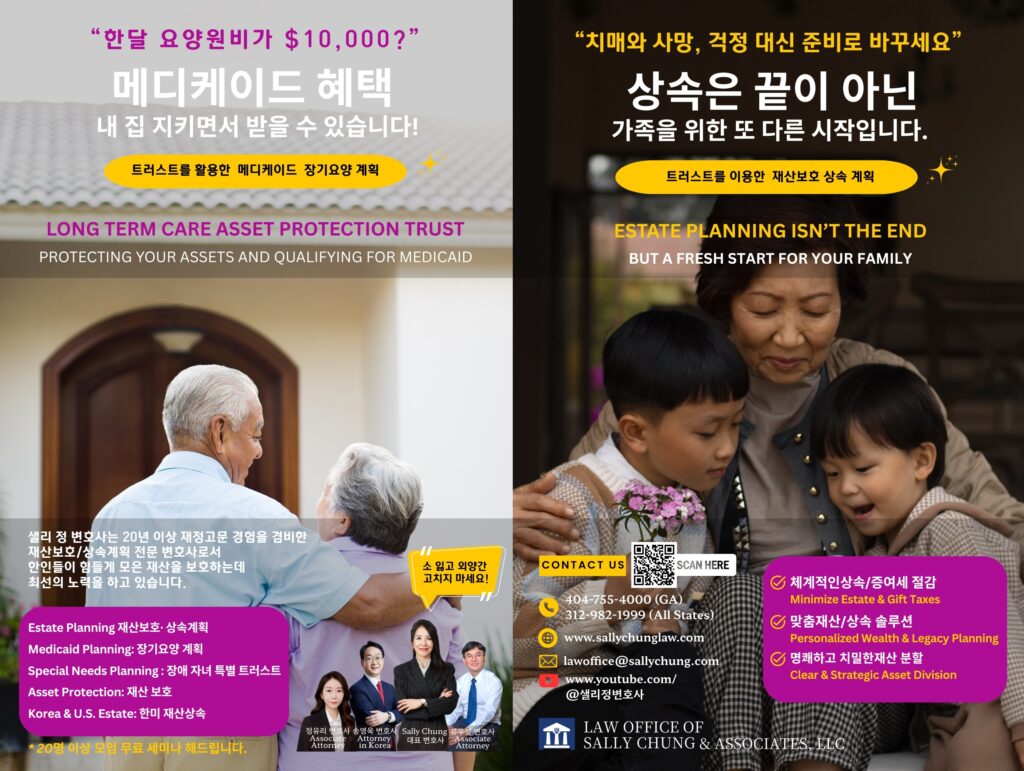
03 Nov A Gift from the Government for a Dutiful Child?
For many parents, their greatest wish is to pass down the family home to their children. But in trying to do so while they’re still alive, they sometimes face unexpected complications that lead them straight to find the attorney. One common situation is when a parent gives their home to a child, only to need nursing home care within five years. When they apply for Long-Term Care Medicaid, the earlier gift triggers a penalty under the program’s Five-Year Look-Back Rule.
If the transfer occurred within five years before applying, the government may impose a penalty period based on the value of the gifted property. During this penalty period, the parent is ineligible for Medicaid benefits and must pay for nursing home care out of pocket.
Fortunately, there is a way to transfer the home to a child without incurring a Medicaid penalty. Ideally, with more than five years of planning time, a Long-Term Care Asset Protection Trust can provide full protection. However, even in more urgent situations, there are legal strategies that can help.
Fortunately, there is a way to transfer the home to a child without incurring a Medicaid penalty. Ideally, with more than five years of planning time, a Long-Term Care Asset Protection Trust can provide full protection. However, even in more urgent situations, there are legal strategies that can help.
If a child has lived with the parent and provided substantial care for at least two years prior to the parent entering a nursing facility, Medicaid allows the home to be transferred to the child without penalty, as a form of compensation for keeping the parent out of long-term care. Each state has its own standards for what qualifies as “care,” so keeping clear documentation of that two-year caregiving period is crucial.
Take the case of Mr. Park. As his dementia progressed, he could no longer live alone safely. His daughter visited an elder law attorney, expressing her wish to avoid placing her father in a nursing home if possible, but also wanting to know if his home could be protected in case it became necessary. Based on elder law provisions, Mr. Park’s daughter moved into his home and committed to providing full-time care. Thanks to her efforts, Mr. Park was able to stay in his own home for just over two years.
To prepare for the possibility of future Medicaid application, the daughter and the attorney created a detailed Caregiver Agreement that outlined the type of care being provided and documented her compensation. They kept thorough records proving that she resided in the home and assisted with daily living tasks, managing medications, preparing meals, bathing, dressing, toileting, and ensuring Mr. Park’s overall safety and well-being.
When Mr. Park eventually needed to move to a nursing facility and applied for Medicaid, the government reviewed his asset transfers. The application included two years’ worth of care logs, third-party statements from family, friends, and neighbors, and a physician’s letter confirming that, without the daughter’s support, Mr. Park would have required institutional care. Supporting documents, such as the daughter’s driver’s license, utility bills, and tax returns, verified that she had truly lived in the home.
In some states, Medicaid requires that the child providing care must have left their job to care for the parent full time. However, most states allow for more flexible arrangements, such as family members sharing caregiving responsibilities even if the child has outside employment. It’s important to note that this exemption applies only to a parent’s child, not to grandchildren, nieces, nephews, or other relatives, and it covers only the home in which the caregiving took place.
Two years later, when Mr. Park entered the nursing home and applied for Medicaid, the government did conduct a review of asset transfers. However, thanks to the documented caregiving and the valid Caregiver Agreement, Medicaid did not treat the transfer of the home as a disqualifying gift. As a result, Mr. Park was eligible for benefits and his daughter was able to keep the home.
From the daughter’s perspective, the government’s approval to keep the home could be seen as a meaningful reward for her devotion and care, a gift in return for her filial piety.

